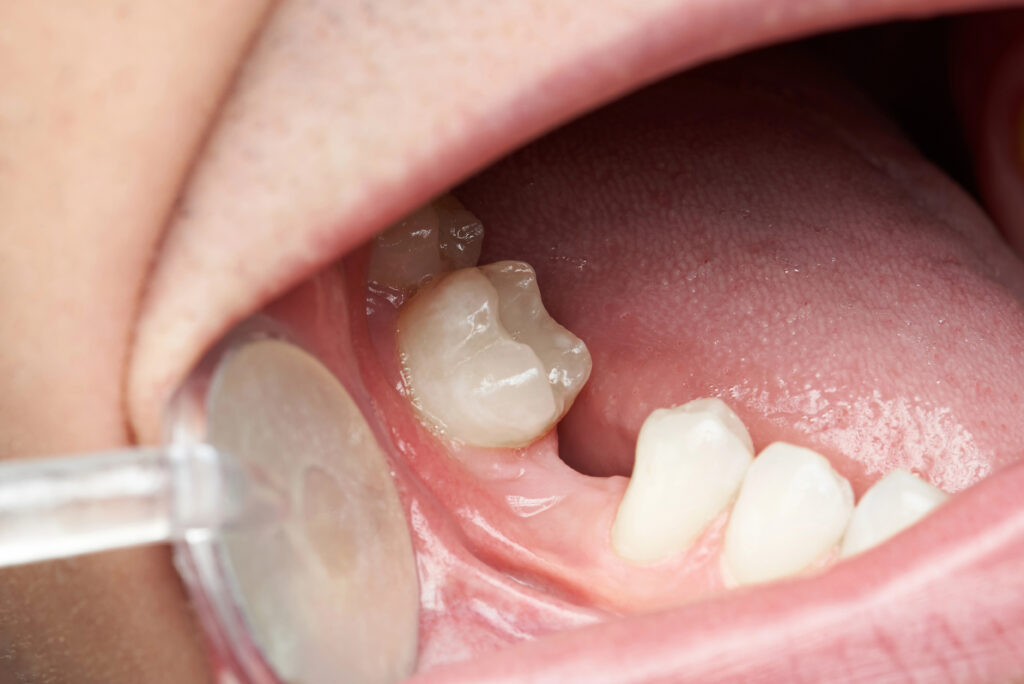What’s The Best Way to Floss
We all know we should floss, but it can be tough. Part of this is because flossing can feel like an extra task in an already busy day, but it...

Losing a tooth can be a major event for some people. And, at the same time, for many, replacing a missing tooth might not feel urgent, especially if it’s not immediately noticeable when smiling.
In either case, you should know that the effects of leaving a missing tooth untreated can go beyond appearances, potentially impacting many aspects of your oral health and even your overall health.
With few exceptions, each tooth in your mouth plays an important role in your dental structure and function. When one goes missing, the impact is more significant than it might seem at first glance. Here’s how losing a tooth affects your oral health over time.
Your teeth naturally rely on each other for positioning. When a tooth is missing, the adjacent teeth tend to drift or tilt into the gap over time. This gradual movement can lead to misalignment, creating spacing issues that were never present before. Misaligned teeth can make brushing and flossing more difficult, leaving spaces for plaque to build up and increasing the risk of cavities and gum disease.
Of course, if a tooth is removed to make space because teeth are too crowded (such as wisdom teeth) or for orthodontic treatment, this may be the intent, and your dentist will closely monitor your progress to make sure the gap is closed correctly. But, in the case of unintended tooth loss, misalignment can be the result.
The structure of your jawbone depends on regular stimulation from your teeth. Just like lifting weights builds muscles and keeps them strong, your teeth help strengthen your jaw. When you bite and chew, those forces are transferred from your teeth to the bone, keeping the bone healthy.
When a tooth is missing, that area of the jawbone doesn’t receive stimulation, leading to gradual bone loss. Bone resorption can weaken your jaw and even affect the shape of your face over time, contributing to a sunken or aged appearance.
Each tooth plays a role in how you chew your food. When there’s a gap, it can make eating certain foods more difficult. Over time, the uneven wear on your remaining teeth can lead to additional dental problems, including cracked or broken teeth.
Beyond oral health, missing teeth can also have effects on your overall well-being.
The good news is that we offer several practical and effective solutions for replacing missing teeth.
Dental implants are considered one of the best solutions for missing teeth. A titanium post is surgically placed in the jawbone, acting as a replacement root. A natural-looking crown is then attached to the post. Implants help prevent bone loss, offer long-term durability, and look and feel natural. Dental implants can even replace multiple teeth, just like dentures.
A bridge is used to fill the gap left by one or more missing teeth. It involves placing crowns on the teeth adjacent to the gap and attaching a replacement tooth (or teeth) in between. While they don’t provide the same bone stimulation as implants, bridges are a less invasive and more affordable option.
For those missing multiple teeth, removable partial or full dentures can be a cost-effective solution. Modern dentures are designed with digital precision for comfort and a realistic look, providing a functional alternative to natural teeth.
If you’re ready to explore tooth replacement options or have questions about what choice is best for you, schedule a consultation today!